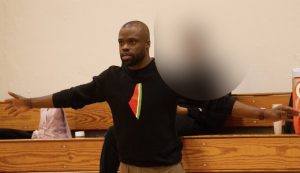TMZ creator, Lee Brownstein, faces criticism for making inhumane comments on Palestine, suggesting turning it into a parking lot amid conflict.
Who is Lee Brownstein?
Lee Brownstein, Chief Content Officer and Founder of TMZ, has come under scrutiny for making controversial remarks regarding the ongoing conflict in Palestine. Brownstein’s comments on social media, specifically targeting Palestinians, have sparked condemnation for their inhumane nature.
Also read | Who is Bill Schretter?
In a tweet directed at a user with the handle @mahoma, Brownstein wrote, “From the river to the sea, Israel will turn Palashtick into a parking lot… you’ll see. You cave people love to whine when you get hit back. What you call for is what you are manifesting for yourselves. Your own end. Bye.”
This statement has drawn ire for its aggressive language and apparent disregard for the humanitarian aspect of the conflict. Brownstein’s association with TMZ, a popular entertainment news outlet, adds weight to the controversy, raising concerns about the responsible expression of opinions, especially by individuals in influential positions.
Lee Brownstein, a seasoned professional in the entertainment industry, has a notable career history, being a creator, director, producer, and editor. His contributions to the development of MTV’s Editorial Style and involvement in the creation of MSNBC highlight his influence in the media landscape.
Also read | Is Elon Musk Jewish? Tesla CEO visits site of Auschwitz death camp
The TMZ creator’s recent comments, however, overshadow his professional achievements, prompting discussions about the responsibility of individuals with significant platforms. Social media users and advocacy groups have called for accountability, emphasizing the need for respectful discourse even in the context of geopolitical conflicts.
As reactions continue to pour in, Brownstein’s remarks underscore the delicate balance between personal opinions and professional affiliations, especially for figures in the public eye. The incident also reignites debates about the role of media personalities in contributing to constructive conversations around sensitive global issues.







